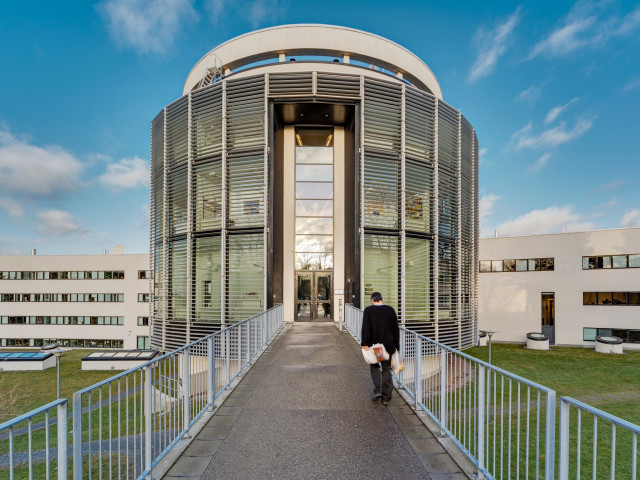Nuclear forces and the structure of the nucleon. Nucleon-nucleon interactions. The deuteron. Nuclear stability. Overview of nuclear models. Nuclear decay (radioactivity). Nuclear reactions. Nuclear astrophysics (nucleosynthesis, stellar processes) Interactions of ionizing radiation in matter. Principles for detection of ionizing radiation. Particle accelerators and their applications. Nuclear energy production (fission, fusion). Nuclear medicine. Material analysis and other applications of nuclear physics.
SH2302 Nuclear Physics 8.0 credits

Information per course offering
Choose semester and course offering to see current information and more about the course, such as course syllabus, study period, and application information.
Information for Spring 2026 Start 13 Jan 2026 programme students
- Course location
AlbaNova
- Duration
- 13 Jan 2026 - 13 Mar 2026
- Periods
Spring 2026: P3 (8 hp)
- Pace of study
67%
- Application code
61091
- Form of study
Normal Daytime
- Language of instruction
English
- Course memo
- Course memo is not published
- Number of places
Places are not limited
- Target group
- TNEEM, TTFYM
- Planned modular schedule
- [object Object]
- Schedule
Contact
Course syllabus as PDF
Please note: all information from the Course syllabus is available on this page in an accessible format.
Course syllabus SH2302 (Spring 2022–)Content and learning outcomes
Course contents
Intended learning outcomes
The course aims to give the students a broad knowledge of nuclear physics, to increase their understanding of phenomena in the microcosmos and of fundamental physical principles, and also to demonstrate how society can benefit from our knowledge in this field. The course also has an emphasis on laboratory work using advanced nuclear instrumentation.
Literature and preparations
Specific prerequisites
English B / English 6
Recommended prerequisites
Modern Physics.
Literature
Examination and completion
Grading scale
Examination
- TEN1 - Examination, 4.0 credits, grading scale: A, B, C, D, E, FX, F
- LAB1 - Laboratory Work, 4.0 credits, grading scale: P, F
Based on recommendation from KTH’s coordinator for disabilities, the examiner will decide how to adapt an examination for students with documented disability.
The examiner may apply another examination format when re-examining individual students.
If the course is discontinued, students may request to be examined during the following two academic years.
Other requirements for final grade
One written examination (TEN1; 4 university credits).
Laboratory work (LAB1; 4 university credits) with written reports.
Examiner
Ethical approach
- All members of a group are responsible for the group's work.
- In any assessment, every student shall honestly disclose any help received and sources used.
- In an oral assessment, every student shall be able to present and answer questions about the entire assignment and solution.